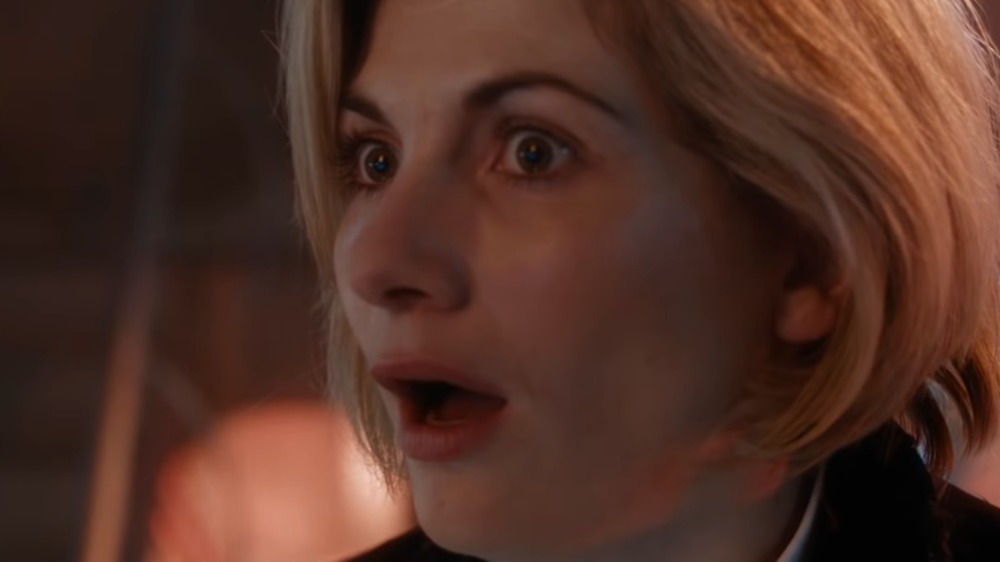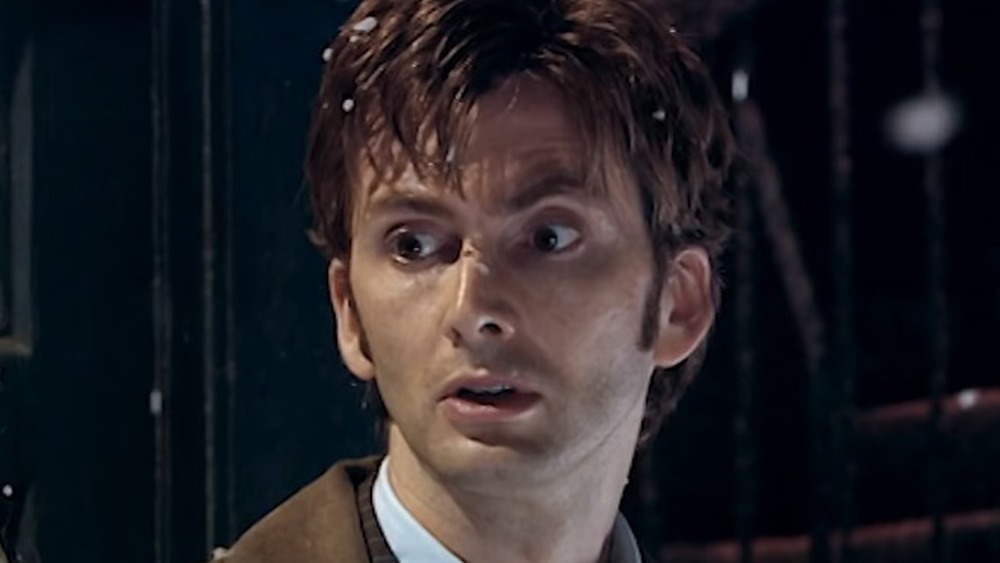The Real Reason The Doctor Always Needs A Companion In Doctor Who
Doctor Who is one of sci-fi's most enduring and eccentric protagonists. Via the BBC, the hero, armed with nothing but a sonic screwdriver, has been going on a variety of interesting adventures since their debut on television in 1963. There have been a host of actors to portray the role of Doctor Who, with the latest being Jodie Whittaker who is currently rumored to be leaving soon. The change in actors to portray the protagonist has led to many interesting and different versions of the Doctor. And even when Whittaker decides to leave the role, this tradition will continue, although if Alex Kingston has anything to say about it, hopefully, River Song will at least get the chance to meet Whittaker's Doctor.
Despite how different the Doctor may appear or act after every reincarnation, there are a couple of things that always remain the same. One, the Doctor travels via Tardis. Two, Timey-Wimey adventures are to be had. And three, the Doctor always has a companion. The Doctor has usually traveled with one companion, but as Screen Rant noted, the last two seasons had the Doctor with a total of three. It's debatable as to whether this increase hindered the usual plot point of the companions bonding with the Doctor. Yet, bonding may not even be the main reason the Doctor usually has a companion. Instead, it could be that the Doctor just needs to be kept in check.
Doctor Who needs a second opinion
The main reason Doctor Who needs a companion is to have someone who can keep him from going too far. As WhatCulture highlighted, Doctor Who often walks a fine line between keeping within the rules established by the Time Lords, and just choosing to ignore those rules for complete control over time. The most obvious example of this is in the 2009 TV special "The Waters Of Mars," with the Doctor's one-off companion Adelaide Brooke. In the special, despite the destruction of the Bowie Base on Mars being a fixed point in time, the Doctor chooses to change things and save lives. This is a clear example of the Doctor ignoring the rules imposed by the Time Lords and taking full control for himself. However, Adelaide, who was one of the lives saved, commits suicide to set the timeline right again. It's through Adelaide's actions that the Doctor realizes that he was wrong because, without that fixed point in time, Adelaide's granddaughter wouldn't have become inspired by her grandmother to become an important pioneer of space travel for Earth. And the action could have pushed the Doctor into becoming more like the renegade Master.
As BBC America notes, "The Waters Of Mars" is a pivotal moment for the Doctor, as it shows him saving lives because of his arrogance, and why that ultimately proves to be wrong. It also highlights the real reason the Doctor always needs a companion.

